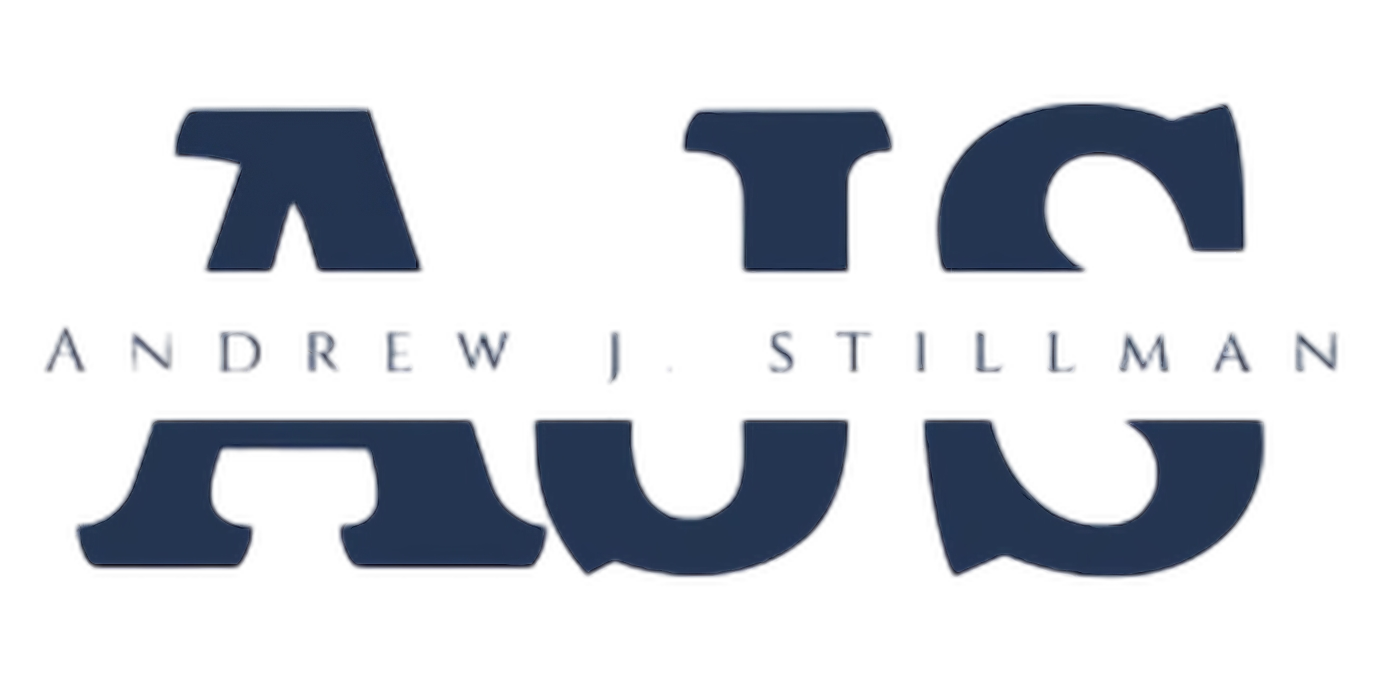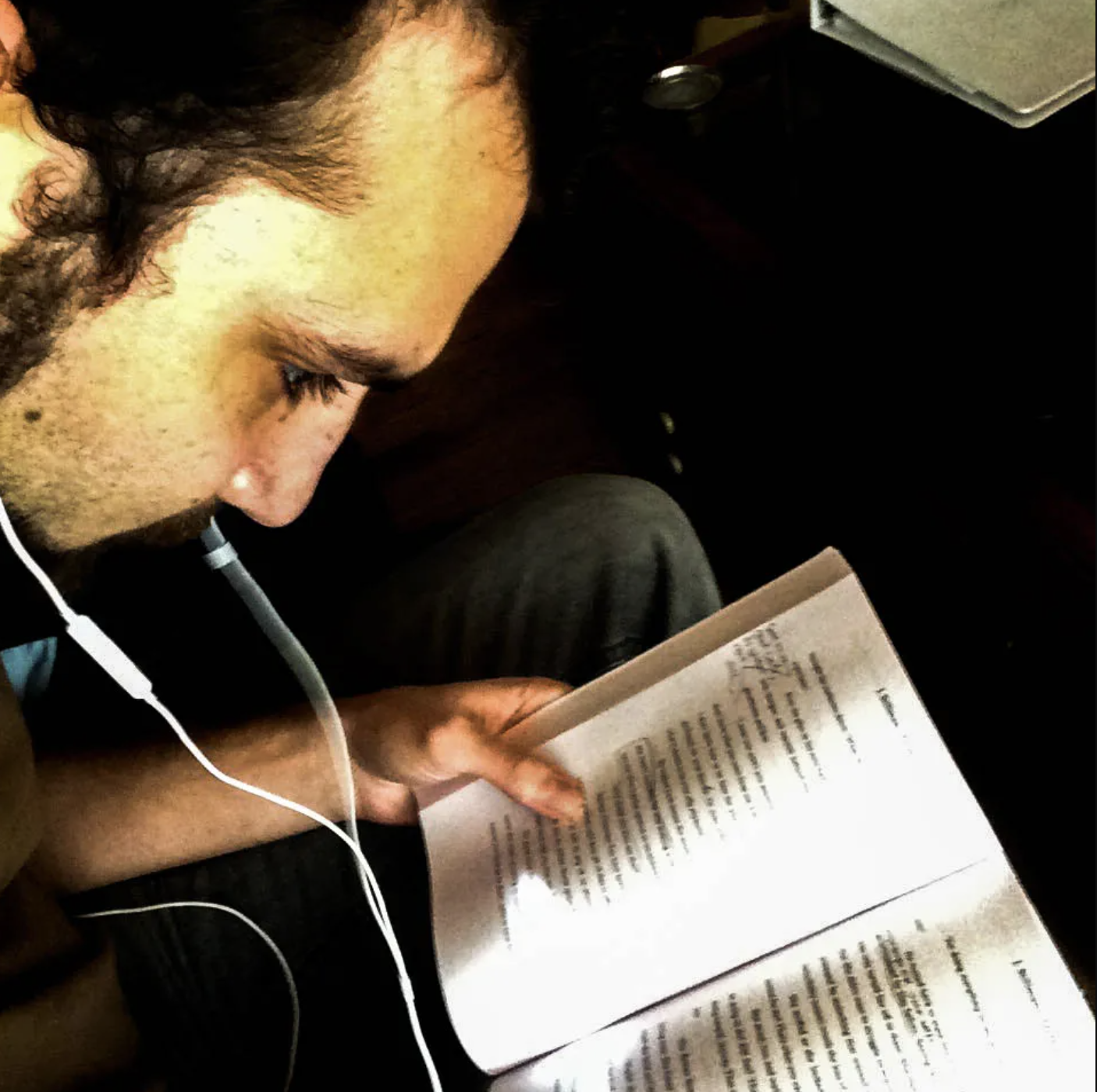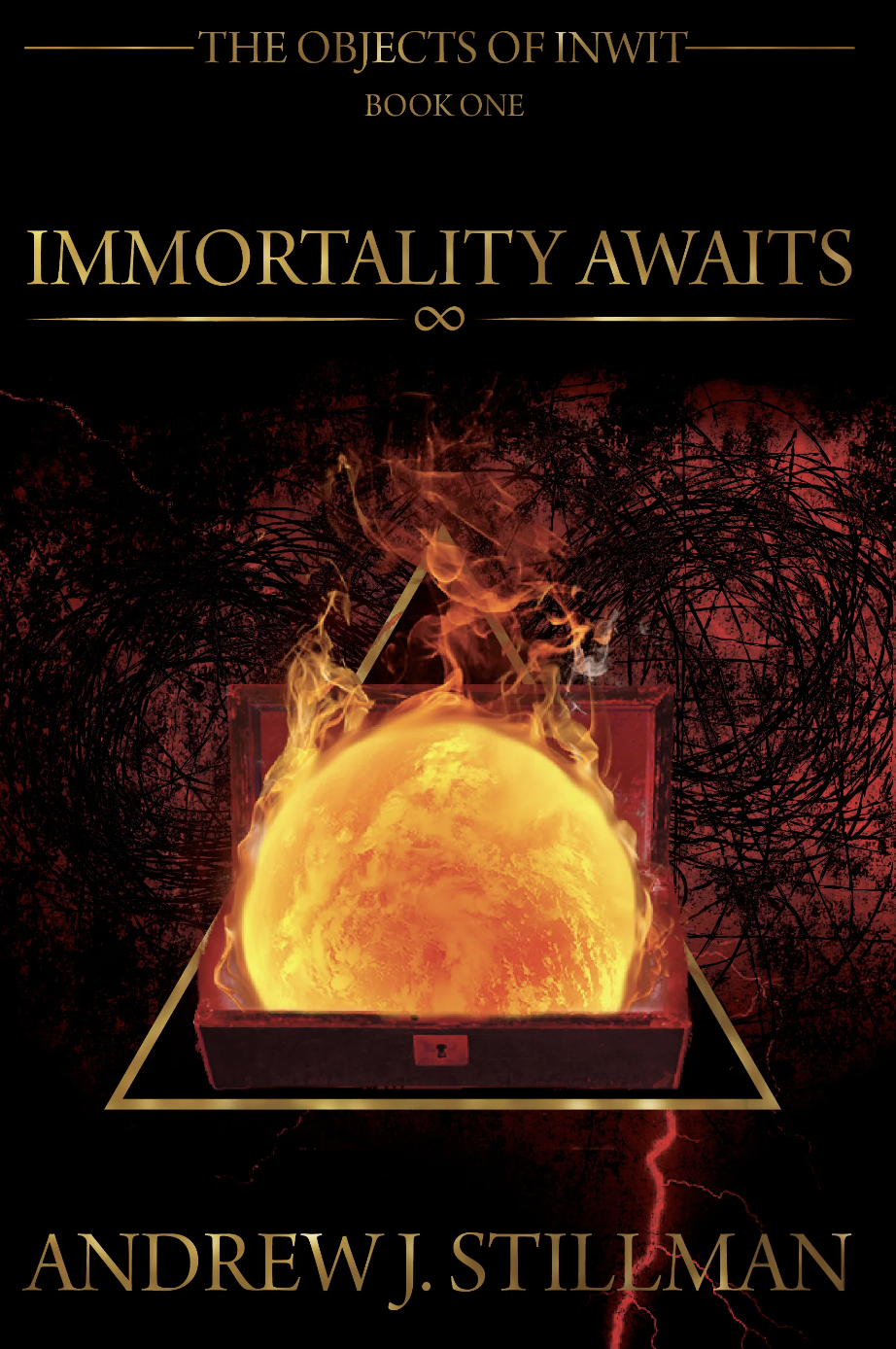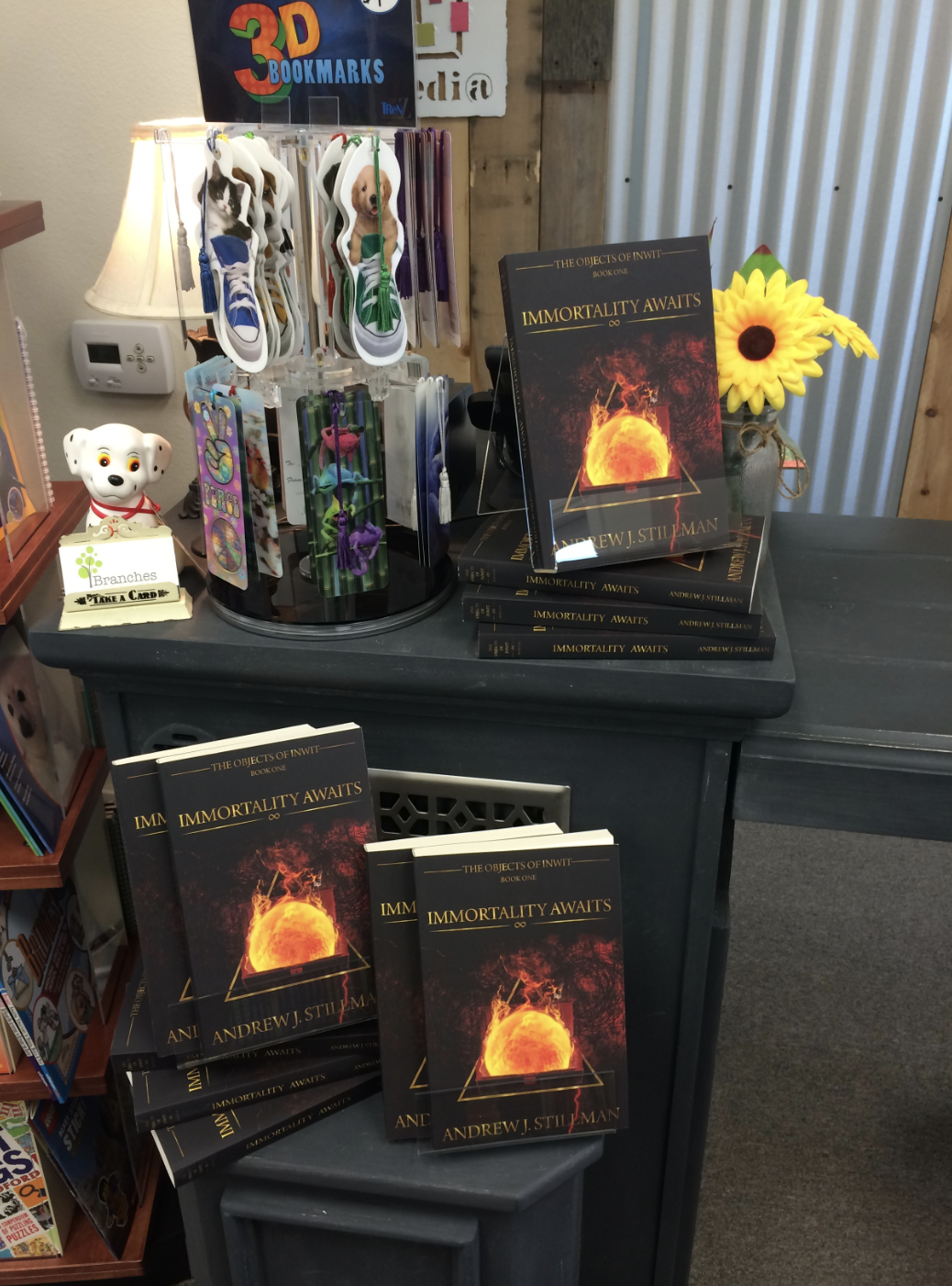Celebrating TEN YEARS of Immortality Awaits!
Ten years ago, I sat down at the computer with a story itching to crawl out of me.
There were no specifics at the time, just something brewing in me that needed to hit the paper.
So I sat down, and I started to write.
At the time, I had no idea what I was getting myself into. I had just graduated high school, and I was home alone. I had the day off from work, the sun was shining, and I felt inspired. All I wanted to do was write, but truthfully, that was nothing different than any other day.
Ever since I was eight, I’d made attempts at writing novels. My ultimate goal was to write a book. Just one. I wanted to start an idea and finish it out. I’d had multiple story ideas throughout the years that started and fell to the wayside, but I always wanted one to capture my interest enough to finish.
Back then, I didn’t realize that the stories choose you.
It’s like pets. It doesn’t work the other way around. The same as my dog Piper came into my life, the story that took over my life chose me.
When the idea crashed into my head, I wasn’t in the mood to write a whole book. I just wanted to write out a story that was fun. I wanted to kill time. It was my day off, and I just wanted to entertain myself.
With that in mind, the story didn’t start as my own book. I had spent the previous few years working on fanfictions, because I felt they helped me grow as a writer. Not in the sense that the fics would ever be anything incredible, I just enjoyed the idea of not having to develop characters or scenes. With those already in place for me, I was able to focus solely on the story.
Immortality Awaits started as a Harry Potter fanfiction. I started writing it two weeks before the final book came out, and I, like millions of others at the time, wanted to write out my ideas on what I thought could possibly happen.
My mind sent me visions of a shadow floating down a castle hall.
I thought that shadow would chase Harry, that it bore some importance to how Harry could defeat Voldemort.
After that, I had visions of fire. Perhaps Harry could use the elements to construct something strong enough to defeat Voldemort. Maybe the core energies of those elements had hidden themselves in objects throughout Hogwarts, and Voldemort knew about them as well. Maybe the final book could be a race between the two of them until the victor was chosen.
The original cover of Immortality Awaits, as done by Createspace
In theory, it worked for me. The story would merely revolve around Harry finding the objects that held the elements, then using those elements to defeat Voldemort.
My fingers flew over the keys as the idea poured out of me. I didn’t take it too seriously, as it was a fanfiction, but the idea stuck with me. Out of all the stories I’d ever written, it was my favorite. There was a sense of adventure that I’d lacked in all the other stories I’d attempted, and it was something that I wanted to hold on to.
At the time, I was no stranger to writing fanfictions. My favorite website was Schnoogle, where the authors of the fanfictions needed to produce at least 30,000 words for “novel-length” fanfiction. I used that as practice, a goal to hit. There are even a few that are still there.
While I wrote the fanfiction about Harry Potter and the Objects of Inwit, I didn’t think I would go over 30,000 words. However, when I hit 33,000 and had only gotten through one element, I knew I had something else on my hands.
Furthermore, upon browsing other fanfictions, I came across ones that were upward of 300,000 words, and the authors had been working on them for years and years.
When I found those, I thought, If I’m going to spend this much time writing a fanfiction, why don’t I invest the same amount of time into a book of my own?
I felt it.
It was different than any of the other stories I’d written. Whenever I forced myself to hit 30,000 words on Schnoogle, I always found myself pushing to finish.
And all of a sudden, it felt like 30,000 words hardly even scratched the surface of the story.
It’s hard to find the words to explain the rush of everything clicking in my head with that realization.
I finally have a story I think I can actually finish.
I closed out of the fanfiction and immediately deleted it off of all of the websites I’d posted it on for review. This one was mine. I wouldn’t need a disclaimer at the top of this story. The characters, settings, and plot were all unique to me.
The night air was cold against his flesh.
The opening line of the novel came out on its own, and it held its spot for years. The story molded from there, and I saw a forest covered in snow with a man, cloaked against the cold, walking through it. He was looking for something… someone…
A woman. Isabelle.
The forest I saw in my mind. When I originally envisioned it, I hadn’t the faintest idea it actually existed.
As I delved into their story, I found myself with a 10,000 word “Prologue.” I didn’t want Isabelle to be the main focus of the story, because I knew in my heart she wasn’t. Her story was vital to the novel, yes, but it wasn’t the central plot as I had thought.
I set aside the first 10,000 words and focused on the stories I knew the novel craved: Donovan and Druin’s.
Ten years later, it’s easier to reflect and describe how this process occurred, but in truth, I didn’t have the faintest idea what the hell I was doing. I thought that chapters had to be at least 5,000 words. If they weren’t, I added endless amounts of fluff until they were. I thought the story had to be written from chapter one to chapter whatever, and didn’t outline the story at all.
Before long, I found myself with a jumbled mess of crossed stories between Donovan, Druin, and Isabelle.
But I went with it. I wrote out the stories as I saw them fit, and a year and a half later, nineteen and closing out my sophomore year of college, I finished the first draft.
At the time, that was the most exciting thing that had yet to happen in my life. Although I was only nineteen, I had spent the last eleven years of my life attempting to finish a complete story.
Now that I had, I thought the hard part was over.
Looking back now, I cringe. I just want to reverse time and shake myself, to scream and shout that the hardest part was hardly even in its earliest stages.
Finishing a manuscript is like building a house. The first draft is the blueprint, the general idea of how everything is going to fit together. After that comes the manual, hard labor that is actually constructing the house. Along the way, changes have to be made, and by the time it’s finished, all those involved are tired and ready to move on to the next project.
My first (failed) attempt at creating a cover for Immortality Awaits using Photoshop
My mistake was thinking I was only responsible for the blueprint, and then I’d pass that on to someone (in this case an editor) who would build the house for me (or, rather, rewrite the book until it’s perfect), and then a Realtor would put it on the market and someone would buy it for a lot of money (as I breeze right into the publishing industry.)
Even reminiscing about my idiocy makes me laugh. I had done a lot of research on the differences between traditional and self-publishing, and by the time I finished college, I decided the latter would be a better option for me.
It wasn’t as though I didn’t think I could ever get traditionally published. Although, considering the fact I published the First Edition and then deleted it, I wouldn’t have been able to traditionally publish the garbage I already tried to share with the world.
If I think the version I published was bad, it has nothing on the atrocity that was the first draft I sent off to be professionally edited.
I’m not the only novice writer to have ever existed, but if I were able to give any advice to aspiring writers, including myself, it is this:
Editors are not there to “fix” everything!
They’re not really there to “fix” anything, to be honest. Giving feedback, yes. Finding typos, pointing out plot inconsistencies, yes. Rewriting or fixing or making it polished and beautiful? That’s all on you, friend.
I wish I knew that when I sent my draft off to an editor as soon as I’d graduated college. I thought my life was about to be paved for me. Now I had a degree in the subject that meant the most to me. I had a manuscript and an editor, and everything seemed to be falling directly in place.
Until I got the draft back.
Again, I wish I could go back and slap myself. When I received the comments back from the editor, I thought I was the worst writer in the world. I decided to quit writing. I obviously had no idea what I was doing, why should I continue? This was the first story I’d ever been able to complete, and if this wasn’t good enough, what was?
I shake my head even as I type the words. So young, so naive, so full of myself and lacking confidence all at the same time.
Needless to say, after about a month or so of wallowing in my own self-pity, I decided to do something about the shitty draft I’d just had torn up by an editor:
I decided to make the suggested corrections.
You see, I was a lazy writer when I first started with this book. As I said, I thought I wrote the manuscript, the editor fixed it, the agent found a publishing house, I got an advance and saw myself on the New York Times Bestseller’s list.
Once I realized how stupid and wrong I was, I set to work. Immortality Awaits, after all, wasn’t going to fix itself.
Me, pretending to be Donovan and using a lightbulb as a fireball to promote the first version of the book. This became the inspiration toward the final cover, found at the bottom of this post.
But it wasn’t even about that. It was about the fact that, no matter how hard I tried, the story wouldn’t leave my head. The more time I spent away from Donovan, Druin, even Isabelle, the more I missed it. The more ideas filled my head, and a desperation to get them on paper took me.
In 2012, five years after I’d written the first line of the series, I discovered National Novel Writing Month, more commonly referred to as "NaNoWriMo." Every year, in the month of November, novice and professional writers alike come together and spend the month each producing 50,000 words of a novel. Along the way, motivational messages from the top names come in to help encourage you, there are forums to take part in, and it’s a write-a-thon I’ll never forget.
I entered NaNoWriMo with timidity and fear. 50,000 words? How was I going to write that in a month?
Well, I did. It was a completely separate story to anything even slightly related to Immortality Awaits, but I learned that I could produce at least 50,000 words of content in a month. At that, I did it in only 3 weeks.
When I finished, I found myself with a bunch of goodies to sort through as a gift to my completion. Through that, I discovered the platform that would change my life:
CreateSpace.
CreateSpace is owned by Amazon, and it’s a print-on-demand service for self-published authors. If you’re unfamiliar with “PoD,” it basically means copies of the book are only printed as they’re ordered, as opposed to a set amount that are expected to sell.
The best part of that program, regardless if you publish or not, is the Proof Copy you’re allowed to order. The point of that is to look at all of the last-minute formatting options, a final read-through, and everything you need to do to make sure it looks perfect.
Even now, I use it to order basically every draft of the book I’m working on. I might have a million copies of my book now, but I will never forget the first time I came home and found a physical copy of my book, bound in actual book form, right on my doorstep.
A new energy filled me after I read my book as a book for the first time. Revisions started flowing out on their own, and before long, I’d constructed the story that eventually became the First Edition.
That story, even though I've now deleted it, went through a lot of changes. From the character wall to my first visit to Lowell, Massachusetts, I dedicated my life to the story. So many times I thought it would break me, that it was worthless to continue, but it wouldn’t leave me.
The third cover of Immortality Awaits, designed my my friend Richie and ultimately used as the cover for the First Edition
And I genuinely mean the story would not leave me.
In 2014, after my first visit to Lowell, I got tired of people asking me when I'd be finished with the book. I’d garnered some interest since I’d started talking about it, but I didn’t know how to deal with people actually wanting to read it.
Then, on May 6, 2014, I made the mistake of pressing the publish button, just to get everyone off my back about when the book would come out.
The problem wasn’t necessarily the book. The book, by itself, was fine. It was a decent story, and I still managed to sell almost 2,000 copies of it.
The problem was that, in my continuing naivete, I’d never thought about the series as a whole.
I knew that there were going to be at least four books, with the potential for a fifth depending on where the story went. One book for each element, the potential fifth potentially centered around a war that’s gotten too big to fit into its previous book. (I’m still trying to figure out how to do it in four. I really might need that fifth.)
After I’d published Immortality Awaits, I was faced with a question:
What next?
Where was this story going to go now? How was the second book going to go? What am I going to do?
The summer that followed publication was spent in large amounts of depression. I’d just moved in to my own apartment, by myself, for the first time ever. I’d just published a book that I knew I believed in, but I also knew wasn’t ready to be shared. Had I just ruined my career? Any opportunity to move forward?
No.
Well, at the time I thought the answer was “yes.” Thus, the depression. The endless deliberation that faced the genuine question, What next?
I speak a lot about the Ultimate Travel Writer’s Program that essentially pushed me into New Zealand. I took that to fill the gap I needed in the story, the motivation that eventually led to everything making sense.
After the summer of depression, the Ultimate Travel Writer’s Program, and my decision to go to New Zealand, it was time to move on to the sequel:
At the time, I didn’t know I was going to end up taking Immortality Awaits off the shelves and rewriting it. To me, that book was done. Closed. Whoever wanted to read it, great, but I knew it wasn’t the book I wanted it to be, so I just chose to move on.
I participated in another NaNoWriMo to kick off Tides, and before long I had finished the sequel. After that, I started plotting out the third and fourth (which is why I still think I’ll need a fifth.)
By the time I’d caught up with where the series was going as a whole, it was time for the New Zealand trip. I thought the purpose of that was for the second book, to put myself in my character’s shoes by living in a world that’s just completely… so out of this world.
New Zealand, though it made its mark as one of the greatest experiences of my life, did not go as planned.
If you’re interested in reading about my time there, feel free. In the end, the biggest impact it left on the series was the realization I needed to delete Immortality Awaits and start over.
I’d figured out the story. I knew where it was going, what happened next. Who kills who. Everything.
So, as a self-published author, I had the power to remove it. And I did.
I spent the last six months in New Zealand rewriting Immortality Awaits, then spent the following year on its revisions.
The Pollard Memorial Library — the most beautiful library I’ve ever seen.
During that time, I planned a trip across the United States, covering 23 of the Northern States as I trekked back to good ol’ Lowell Massachusetts. (Check out all the vlogs!!) I decided I wanted to spend more time in the only tangible setting of my novel before I finished it this time. I also set a goal of releasing it on the day the story starts — October 11. But we’ll see how that goes.
As of now, I can’t believe I’m sitting in the Pollard Memorial Library in Lowell Massachusetts. The same location as the very setting in my book, in the city of my dreams, getting this damn story out of my head, ten years later.
Here’s to hoping I’m celebrating the end of this series on the next ten-year post.










